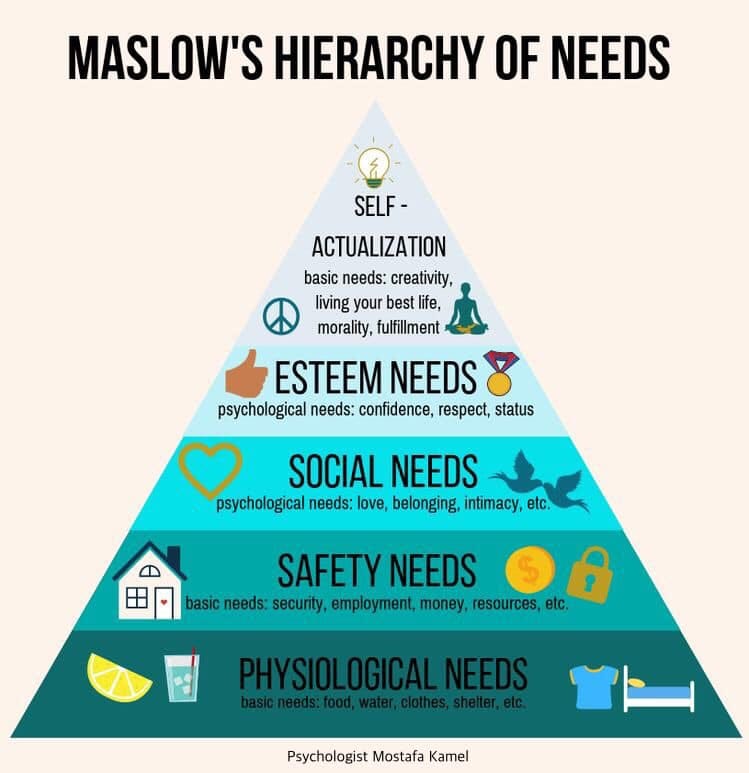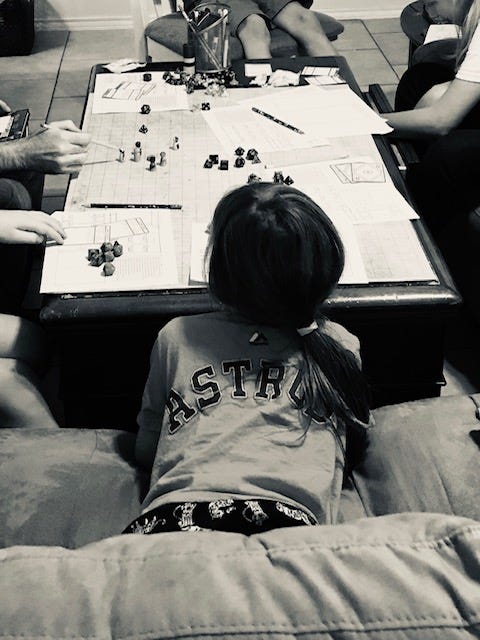Do you wonder why I believe in tabletop role playing?
Because it meets people’s needs.
According to Abraham Maslow, we have a lot of needs, but they form a line in order of urgency. All of them are important, but like the laws of density, the denser needs sink to our awareness first.
Physiologically, we first make sure that food, water, clothing and shelter are all in place before we move on - for most of us, those needs are met. Safety, we require a “sense” of safety as well as job security, money in the bank, and transportation to help us obtain needs. Next, we look to other and deep within yourself to enjoy feelings of friendship, intimacy and overall belonging to a tribe of friends and family.
When the first two needs are not met, the third will be very difficult to reach. It makes sense - living paycheck to paycheck cramps your entertainment lifestyle which is the space we usually bond with others from our tribe.
And don’t even get me started on how many arguments you can have with your mate when money is tight - it’s like our instincts are to pick fights when the resources are scarce.
I could go on about the other two tiers of needs - self esteem and actualization, but I want to steer towards my point.
Tabletop role playing functions as a way to meet needs in this 3rd group of needs - love and belonging.
I have heard it said, “Trauma from community requires healing in community.” This means that all of the times we got hurt by friends and family left a mark on us that can only be healed by opening up once again in community and allowing that new experience to bring healing.
I know there are many ways to be healed - being a part of a tribe is one of them and very important to helping us move up that hierarchy towards self esteem and actualization.
Just like one can pause their development because basic need for food and water is scarce, we can pause our development if social hurts are not healed.
Here is where I think tabletop role playing games fit in. Since 2018, I have led more than 10 groups into the imagination realm of storytelling and rolling dice. The majority of the time, everyone is getting along and in the game, accomplishing quests and slaying dragons - together. Their characters are basically the heroes of the story, but not lone rangers. In fact, they are a community of heroes who depend on one another to watch each other’s backs and assemble to arms when another is in trouble.
In fact, the Lone Ranger even had Tonto. Batman had Robin. Conan had Valeria. In other words, we were made to go on adventures together.
In life, when we experience hurt, the brain processes that as a bad experience and informs our body we’ve been hurt. It’s real.
But in a way, so is tabletop role playing. I know it sounds strange, but when you sit across the table, pencil in hand and throw some dice around to push your luck - and you roll well - your brain registers that as a win. Then it files it away as a positive experience in community. This is why we feel so good after playing together - the happy chemicals are the reward our brain gives us for winning.
The reason I propose that tabletop role playing is therapy is because it simulates the social healing needed from our past hurts in community. I don’t think our brains know the difference and it feels good. This little bit of leverage helps you shift your mindset to believe good things.
Think like a hero and you’ll act like one. Act like a sojourner in the party and you’ll heal in community.
As always, may your story continue!





